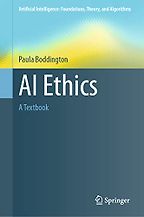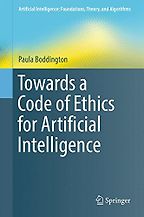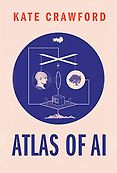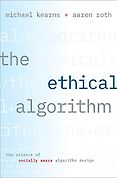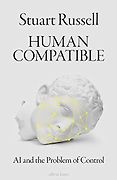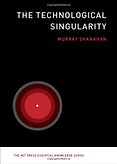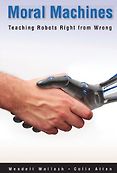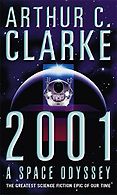
Books by Paula Boddington
Paula Boddington is a philosopher whose work includes philosophy of mind, moral philosophy and applied ethics. She has worked extensively in interdisciplinary contexts and is interested in the links between theory, practice, and policy, including the ethical and social issues surrounding the development of new science and technology. She is currently Associate Professor of Philosophy and Healthcare at the University of West London. Previously, she was a senior research fellow in the Department of Computer Science, University of Oxford, on a project funded by the Future of Life Institute, exploring the development of codes of ethics for AI.
“The textbook grew out of some teaching I’ve been doing on a Master’s course, on philosophy and AI. The audience I’d envisaged was students who were maybe working in computing or engineering, but I’ve tried to make it as broad as possible. There are now lots of arts and social science courses where people are studying elements of ethical issues in AI. As I’ve mentioned, one of the things we need to encourage is interdisciplinary conversations. I also tried to write it clearly and accessibly so that any interested members of the public could just read it on their own. The emphasis really is on trying to open up dialogues, to show a range of different views and try to encourage readers that they’ve got things they can bring to the debate. There is a huge range of questions to look at that I try to cover in the book. They’re interlinked with each other, so I try to cross-reference. For example, in the section where I’m talking about Stuart Russell’s book, I look back at how philosophy of mind and psychology have understood the human mind and the problems in philosophical and psychological behaviorism that we just discussed. I’ve tried to be as open-minded as possible, but obviously my own views are going to be in there. One of the things that’s so interesting about what we’re facing now, with AI and related technologies, is that it makes us ask deep questions about human nature. So I’ve included different ways of approaching what it is to be a human being, of understanding what intelligence is, why we value it, and how that relates to the questions we’re looking at.” Read more...
Interviews with Paula Boddington
-

1
Atlas of AI: Power, Politics, and the Planetary Costs of Artificial Intelligence
by Kate Crawford -

2
The Ethical Algorithm: The Science of Socially Aware Algorithm Design
by Aaron Roth & Michael Kearns -

3
Human Compatible: Artificial Intelligence and the Problem of Control
by Stuart Russell -

4
The Technological Singularity
by Murray Shanahan -

5
Moral Machines: Teaching Robots Right From Wrong
by Wendell Wallach and Colin Allen -

6
2001: A Space Odyssey
by Arthur C. Clarke
Ethics for Artificial Intelligence Books, recommended by Paula Boddington
Ethics for Artificial Intelligence Books, recommended by Paula Boddington
Advances in artificial intelligence pose a myriad of ethical questions, but the most incisive thinking on this subject says more about humans than it does about machines, says Paula Boddington, philosopher and author of a recent AI ethics textbook. We first spoke to Paula in 2017—a long time ago in a fast-moving field. This week we caught up with her to find out what’s happened since then and which new books have taken the conversation over ethics and AI further.
Interviews where books by Paula Boddington were recommended
-

1
Atlas of AI: Power, Politics, and the Planetary Costs of Artificial Intelligence
by Kate Crawford -

2
The Ethical Algorithm: The Science of Socially Aware Algorithm Design
by Aaron Roth & Michael Kearns -

3
Human Compatible: Artificial Intelligence and the Problem of Control
by Stuart Russell -

4
The Technological Singularity
by Murray Shanahan -

5
Moral Machines: Teaching Robots Right From Wrong
by Wendell Wallach and Colin Allen -

6
2001: A Space Odyssey
by Arthur C. Clarke
Ethics for Artificial Intelligence Books, recommended by Paula Boddington
Ethics for Artificial Intelligence Books, recommended by Paula Boddington
Advances in artificial intelligence pose a myriad of ethical questions, but the most incisive thinking on this subject says more about humans than it does about machines, says Paula Boddington, philosopher and author of a recent AI ethics textbook. We first spoke to Paula in 2017—a long time ago in a fast-moving field. This week we caught up with her to find out what’s happened since then and which new books have taken the conversation over ethics and AI further.
